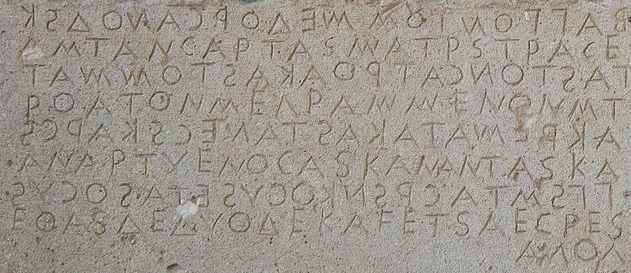December Reading
Jan. 4th, 2025 03:53 pmSo the problem with using New Year’s as a time to take stock and make plans or to set a pattern for the year to come is that generally I spend New Year’s celebrating Christmas with whichever part of my family I didn’t see earlier in the month. So I’m not in a familiar space and often I don’t even have my laptop with me, which has, for example, the .txt file where I keep track of my reading.
Luckily this month that wasn’t complicated.
Recent: I listened to the audiobooks of Allie Therin’s Roaring Twenties Magic series again, while sewing. This was exactly what I needed and I enjoyed it very much.
That’s it, that’s all I finished this month.
I did reread “Christabel” on the subway one day, and I bought waayyy too many books and read some scholarly introductions to 18th century literature.
Current: I’m almost done rereading The Ironmaster’s Tale.
I am about halfway through Isabel Cooper’s Blood and Ember, which is the conclusion to a fantasy trilogy. I’m enjoying it, but I won’t finish it before I need to renew it.
But at least I can renew it, while The Notebook: A History of Thinking on Paper and Freya Marske’s Swordcrossed (both of which I’ve just started) have holds on them and I also probably won’t finish them before they have to go back. Oh well, I can put more holds on.
Future: I might just reread Daniel Cabot Puts Down Roots. That sounds like it’d be great right now. Also there was an excellent Yuletide fic for it.
Beyond that I might try to space things out a bit more. I may be hitting a point where I can only focus on one or two books at once, which would be weird.
Posted later here because like hell was I dealing with html tags on a touchscreen keyboard. But also I have now given my sister her Christmas present so I have posted quilt pictures on tumblr!
Luckily this month that wasn’t complicated.
Recent: I listened to the audiobooks of Allie Therin’s Roaring Twenties Magic series again, while sewing. This was exactly what I needed and I enjoyed it very much.
That’s it, that’s all I finished this month.
I did reread “Christabel” on the subway one day, and I bought waayyy too many books and read some scholarly introductions to 18th century literature.
Current: I’m almost done rereading The Ironmaster’s Tale.
I am about halfway through Isabel Cooper’s Blood and Ember, which is the conclusion to a fantasy trilogy. I’m enjoying it, but I won’t finish it before I need to renew it.
But at least I can renew it, while The Notebook: A History of Thinking on Paper and Freya Marske’s Swordcrossed (both of which I’ve just started) have holds on them and I also probably won’t finish them before they have to go back. Oh well, I can put more holds on.
Future: I might just reread Daniel Cabot Puts Down Roots. That sounds like it’d be great right now. Also there was an excellent Yuletide fic for it.
Beyond that I might try to space things out a bit more. I may be hitting a point where I can only focus on one or two books at once, which would be weird.
Posted later here because like hell was I dealing with html tags on a touchscreen keyboard. But also I have now given my sister her Christmas present so I have posted quilt pictures on tumblr!





